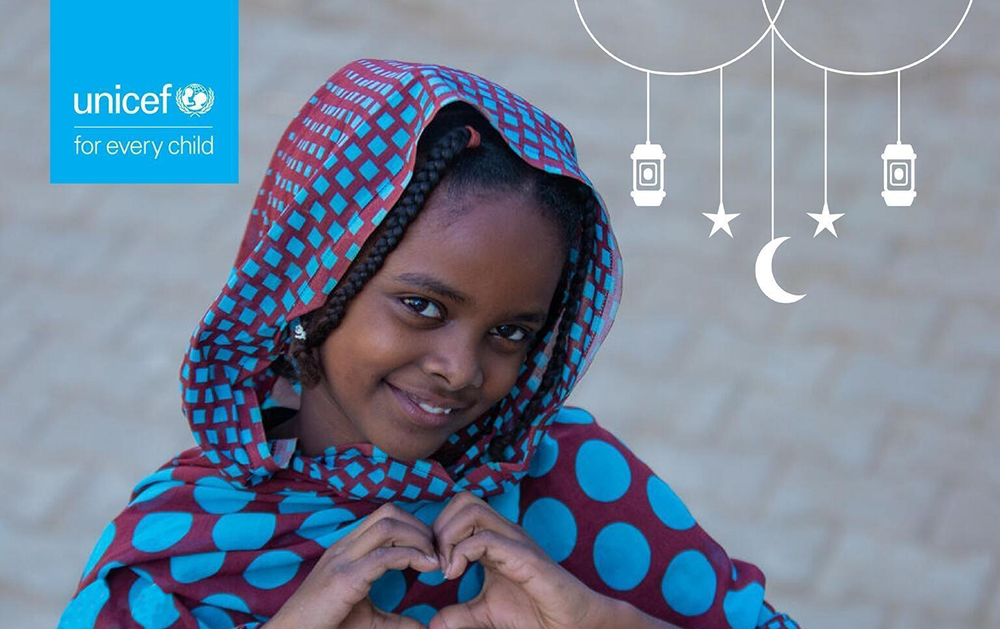
UNICEF: We need safe passages and resources by the end of March to avoid imminent catastrophe
moatinoon
The United Nations Childrens Fund (UNICEF) has urged parties to the conflict in Sudan to enable the rapid, sustainable, and unimpeded delivery of humanitarian aid, both through conflict lines within Sudan and across its borders with neighboring countries. The international community has also been called upon to mobilize massive resources by the end of March so that humanitarian partners can obtain supplies and capacities on the ground in time to mitigate the impending humanitarian catastrophe.
This came in a press statement issued today, Friday, by Jill Lawler, UNICEFs Head of Field Operations and Emergencies in Sudan, at the conclusion of his visit to Omdurman and Khartoum accompanied by a team of 12 UNICEF staff, in the UNs first mission to the two cities.
Lawler said, "It is an ethical and legal responsibility for parties to the conflict to protect children. In particular, they must take tangible measures to prevent and end the killing and maiming of children; the recruitment and use of children in conflict; and all forms of sexual violence."
He added, "Hunger is widespread, and it is the primary concern expressed by people."
The executive director of the organization reiterated last week, "The brutal war in Sudan is pushing the country towards famine, and unless there is sufficient political will, attention, and dedicated resources to respond now, we are facing a potentially catastrophic loss of lives."
He added, "Twenty-four million children across Sudan need and deserve peace. They need a ceasefire. They need a permanent political solution. They need a chance to be children."
He explained, "Our goal was to understand as much as possible the conditions children are living in after 11 months of fighting, and to directly see the work we support with local partners to deliver life-saving supplies and services, at least to parts of Omdurman we managed to reach."
Lawler recounted the situations he witnessed, saying, "At El-Neel Hospital, one of the few hospitals in Khartoum with an effective and overcrowded trauma ward, we met two young men who had recently undergone amputations - two lives changed forever - and we learned from the hospital director that about 300 people had limbs amputated at the hospital in the past month alone."
He added, "Doctors say the needs are increasing. We saw two, sometimes three patients sharing a bed. Staff fatigue, many of whom practically live in the hospital and most of whom have not received regular salaries for months, is evident, as is frustration due to the shortage of supplies, equipment, and space."
"At another hospital, we visited malnourished children and their caregivers in complete darkness due to power outages. The backup generator had failed about a week ago, so they were working in the dark, maintaining crucial cold chain vaccines using ice packs. With the approaching summer months, these ice packs wont last."
He continued, "During our visit, we learned that women and girls who were raped in the early months of the war are now giving birth - and some have been abandoned to the care of hospital staff, who have built a nursery near the maternity ward."
He said, "We saw the Minara water treatment station supported by UNICEF, the only station still operational out of 13 stations in the Khartoum area, providing safe drinking water to about 300,000 people in Omdurman. The station has also been damaged due to fighting and operates at only 75% of its maximum capacity, but it will cease operation within two weeks unless more chlorine is provided to treat the water for these residents."
"While we heard gunfire in the distance, there was relative calm where we were, but there was intense armed presence in markets, streets, and even hospitals. We saw many young people carrying weapons. It wasnt clear how old they were, but it was clear they were young, and it was clear they were not in school, which has been closed since the beginning of the war."
"There is food in the market, but most families simply cannot afford it, partly due to continued disruption of both wired and wireless communications preventing families from receiving cash transfers via mobile phones, which are desperately needed."
He added, "We met a young mother in the hospital, and her three-month-old child was very sick because she couldnt afford formula, so she replaced it with goats milk, leading to diarrhea. She wasnt alone. The numbers of children suffering from severe malnutrition are rising, and the lean season has not yet begun. It is estimated that nearly 3.7 million children in Sudan will suffer from severe malnutrition this year, including 730,000 children in need of life-saving treatment."
"The needs of children in Khartoum alone are immense. But this also holds true for Darfur, where I was last month on a cross-border mission via Chad. The scale and size of childrens needs across the country are simply staggering. Sudan is now experiencing the largest displacement crisis in the world. Some of the most vulnerable children are in hard-to-reach areas."
He clarified, "Our demands are clear. We need parties to the conflict to enable the rapid, sustainable, and unimpeded delivery of humanitarian aid - both through conflict lines within Sudan and across its borders with neighboring countries. Chad has provided a lifeline to local communities in Darfur, and access across its borders remains crucial, along with access through South Sudan.
"It is an ethical and legal responsibility for parties to the conflict to protect children. In particular, they must take tangible measures to prevent and end the killing and maiming of children; the recruitment and use of children in conflict; and all forms of sexual violence.
"From the international community, we need a massive mobilization of resources by the end of March so that humanitarian partners can obtain supplies and capacities on the ground in time to mitigate the impending humanitarian catastrophe we are witnessing."

